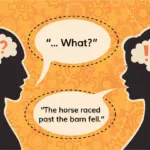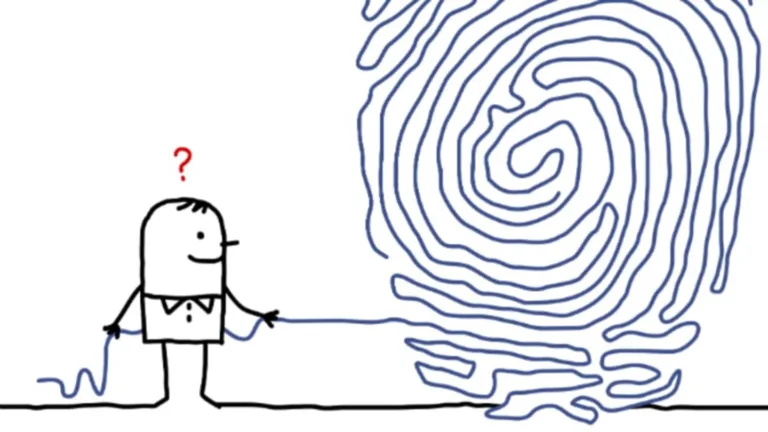Ever stumble upon a word that seems oddly familiar but you can’T Quite Place Its origin? It might just be hiding in plain sight as a True Acronym, a shortened form of a phrase that has become so ingrained in our language we often forget its Full Meaning. These linguistic shortcuts, born from the need for brevity and efficiency, have woven themselves into the fabric of our everyday conversations, literature, and even technology.
From common household items to complex Scientific Terms, acronyms have infiltrated almost every aspect of modern life. Think about “Scuba,” which stands for “self-Contained Underwater Breathing apparatus” – a mouthful compared to its snappy acronym! Or consider “Radar,” originally an abbreviation for “radio detection and ranging.” These examples highlight how True Acronyms Can Simplify Complex Concepts, making them more accessible and memorable.
But the journey of an acronym from its abbreviated beginnings to everyday usage isn’T Always Straightforward. Sometimes, words we mistakenly believe are acronyms turn out to be backronyms – words that are later given fabricated Origins As Acronyms After they’Ve Already Gained Widespread Use. This fascinating interplay between language evolution and popular belief adds another layer of intrigue to the world of True Acronyms.
Unmasking Acronyms: From Aga to Zig
Get ready to have your mind blown as we delve into the fascinating world of acronyms! From the seemingly simple “Aga,” which actually stands for “Aktiebolaget Gasaccumulator” (a Swedish gas-heating company) to the more complex “Gigaflop” denoting a measure of computer processing power, these linguistic puzzles reveal hidden stories Behind Everyday Words.
Exploring this list is like embarking on a treasure hunt, uncovering the origins of terms we use without a second thought. For example, did you know that “Scuba,” indispensable for underwater adventurers, stands for “self-Contained Underwater Breathing apparatus”? Or that “Sim Card,” essential for our mobile connections, is short for “Subscriber Identification module”? Each acronym tells a unique tale, shedding light on the evolution of technology, culture, and even humor.
Think about “Snafu,” a term used to describe utter chaos. It’s an acronym that perfectly encapsulates Its Meaning: “Situation Normal, All F**D Up.” These concise expressions often carry a weight and impact far greater than Their Literal Components, becoming shorthand for complex ideas or Shared Experiences.
The Evolution Of Abbreviations into Everyday Words
The journey of an acronym from a mere abbreviation to a fully integrated part of our lexicon is a fascinating one. It’s a gradual process, often driven by the need for efficiency and the human tendency to Simplify Complex Information. Over time, repeated use can lead to the shortened form becoming more recognizable and familiar than the original phrase.
Think about “laser,” originally an acronym for “light amplification by stimulated emission of radiation.” It’s now a common household term, used in everything from eye surgery To Barcode Scanners. Similarly, “radar” – short for “radio detection and ranging” – has become synonymous with detecting objects at a distance. This evolution highlights how negations can reflect the ever-changing landscape of language, adapting to our needs and shaping our understanding of the world.
This process isn’T Always Smooth Sailing, though. Some acronyms face resistance or remain confined to specific fields due to their complexity or niche application. But for those that successfully navigate this linguistic evolution, they become powerful tools for communication, bridging the gap between technical jargon and everyday language.
 Sentence Illusions: 5 Ways Language Can Trick Your Mind
Sentence Illusions: 5 Ways Language Can Trick Your MindDebunking Backronym Myths
Language is a living, Breathing Entity, constantly evolving and adapting. Sometimes, this evolution can lead to curious Phenomena Like Backronyms. These are words that are later Assigned Fabricated Acronyms After they’Ve Already Gained Widespread Use, often creating a sense of false history or origin.
Think about the word “posh,” which many believe stands for “Port Out Starboard Home,” referring to wealthy travelers on ships. This charming backronym is actually a myth! The true origin of “posh” Remains Unclear, but it likely emerged from an Older Term Meaning “refined” or “high-class.” Similarly, “golf,” often attributed to the Dutch phrase “Kolf” (meaning stick), has a more debated history, with various theories suggesting alternative origins.
Understanding backronyms helps us appreciate the dynamic nature of language and recognize that not every word’s origin story is as straightforward as It Might Seem.
It reminds us to be critical thinkers and explore multiple perspectives when Encountering Linguistic Claims, especially those involving seemingly clever acronyms.
The Power and Persistence of Acronyms in Language
The enduring power of acronyms lies in their ability to distill complex information into concise and memorable forms. They act as linguistic shortcuts, saving us time and effort while simultaneously conveying a wealth of meaning. From technical jargon to everyday slang, negations have become an integral part of our communication landscape, shaping how we understand and interact with the world around us.
Consider the impact of acronyms in fields like technology and medicine. They allow professionals to communicate complex Concepts Efficiently, ensuring clarity and precision in critical situations. For instance, “HTML” (Hypertext Markup Language) Revolutionized Web Design, while “MRI” (Magnetic Resonance Imaging) Has Transformed Medical Diagnostics. This ability to condense information into easily digestible chunks has propelled acronyms to the forefront of modern communication.
Furthermore, their brevity often lends itself to memorability and catchiness, making them ripe for popular culture adoption. From “Nasa” to “Fbi,” these shortened forms have permeated our Collective Consciousness, becoming instantly recognizable symbols of their Respective Fields. This widespread recognition speaks volumes about the power and persistence of acronyms in shaping our language and understanding.
Beyond the Alphabet: A Glimpse into Word Origins
Delving into the origins of words can be a fascinating journey, revealing hidden connections and unexpected influences that shape our language. While acronyms offer a unique window into this linguistic evolution, exploring broader word origins unveils even Richer Narratives. Words often carry within them echoes of ancient history, Cultural Exchanges, and the ever-shifting sands of human experience.
Consider the humble word “pizza.” Its journey began in Naples, Italy, where flatbreads topped with various ingredients were a staple food. Over time, this culinary delight traversed continents, evolving alongside culinary traditions and acquiring new meanings and variations. Similarly, Words Like “algebra” (from Arabic) and “kindergarten” (from German) demonstrate how cultural exchange has enriched Our Vocabulary, reflecting the interconnectedness of human history.
These explorations often lead us to unexpected corners of the world, unveiling fascinating etymologies and revealing the intricate tapestry woven by language over millennia. From ancient roots to modern adaptations, word origins offer a glimpse into the dynamic forces that shape our Linguistic Landscape, reminding us that language is far more than just a means of communication; it’s a living testament to human history and ingenuity.










